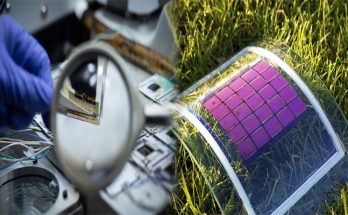As the world continues to face a growing energy crisis, it becomes more and more important to find alternative sources of sustainable energy. Solar energy has emerged as a promising solution to this crisis, with technology advancements being made in both solar cell materials and their manufacturing processes.
Thin-film solar cell technologies have been developed as a way to increase the efficiency of solar cells and lower their production costs. Advanced thin-film solar cell technologies are becoming increasingly popular as they offer higher efficiencies and more cost-effective production methods.
In the past, the efficiency of thin-film solar cells was limited to around 10-12%. However, advancements in technology have made it possible to achieve efficiencies of over 20% with thin-film solar cells. This is due to the development of new materials and innovative manufacturing processes that allow for the creation of thinner, more efficient cells.
One of the most significant advances in thin-film solar cell technology has been the development of perovskite solar cells. These cells are made with a perovskite material that has a unique crystal structure that allows for more efficient energy conversion from sunlight. Perovskite solar cells are also more cost-effective to produce, making them an attractive option for large-scale solar energy production.
Another promising technology in the field of thin-film solar cells is the use of tandem solar cells. These cells are made by stacking two or more thin-film solar cells on top of each other, allowing them to capture a wider spectrum of sunlight and convert it into energy. This technology has already demonstrated an efficiency of over 29%, which is among the highest of any solar cell technology currently available.
Overall, advanced thin-film solar cell technologies hold great promise for the future of solar energy. With increased efficiencies and more cost-effective production methods, these technologies have the potential to transform the energy industry and move us towards a more sustainable future.





